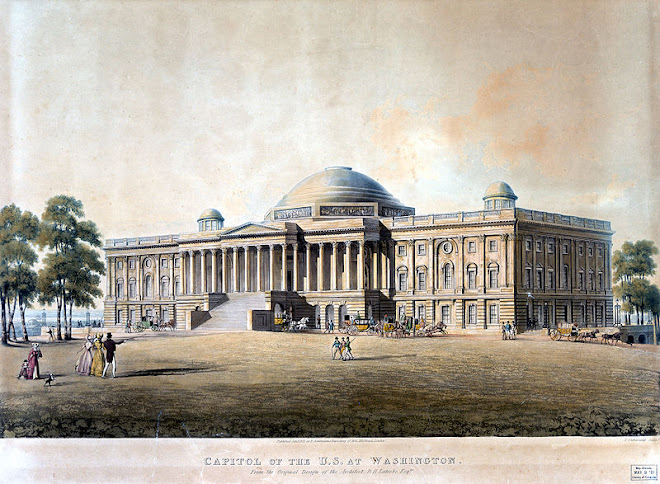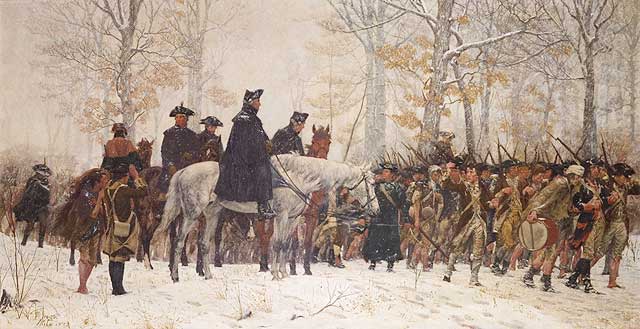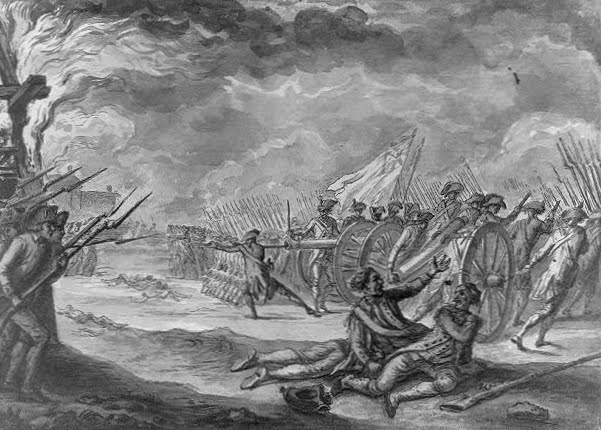From WND:
- How to Buy GoldPhysical Gold Shipped to Your Door Free Investor Kit. Since 1960.Goldline.com/Buy-Gold
A retired attorney who has taught constitutional law and now is an author and radio host says America is duplicating with the new National Defense Authorization Act mistakes that landed hundreds of thousands of Japanese-Americans in Wyoming and Colorado internment camps during World War II.
The issue has been making headlines for several weeks because of the interpretation held by many critics that the law allows Barack Obama as the president to determine when someone, even an American citizen, would be taken into custody and held under the law of war – that is, without trial, hearing, charges or due process.
- How Much is My Car Worth?Get a Black Book Appraisal Value of Your Car. It's Easy and Fast!BlackBook.WhyPaySticker.com
- Buy Gold CoinsGuaranteed Lowest Price For Gold! Free Gold Investor GuideGoldCoinsGain.com/Buy-Gold-Coins
The issue became a focal point in just the last few days when lawmakers in Virginia approved by 96-4 and 37-1 votes a state plan that simply would not allow the federal provision to be used within state borders.
The analysis is from Michael Connelly, who did the evaluation for theUnited States Justice Foundation, which advocates for civil and religious rights and liberties.
“The problem is that when the language is carefully read, it becomes clear that this does not exempt U.S. citizens from being detained without due process, but only says that it is not required,” Connelly notes. “The decision of whether an American citizen can be detained indefinitely, without being formally charged, or tried, is, therefore, left in the hands of one person, the president of the United States.
“Giving the president of the United States, or anyone else, this kind of authority over American citizens was something that the framers of the U. S. Constitution, and, specifically, the Bill of Rights, were trying to prohibit. Yet it appears that this law is doing what the founders of our country feared,” he continued.
“One of the problems is that it has been done before. U.S. citizens of Japanese descent were interred by the U.S. government after the Japanese attack on Pearl Harbor. The detention was the result of executive orders issued by then President Franklin D. Roosevelt.”
The point raised by Connelly was one that the Virginia lawmakers considered when deliberating the issue of the NDAA for 2012, which was signed by Obama Dec. 31, 2011.
Among its sections is 1021, “which purports to authorize the president of the United States to use the armed forces of the United States to detain American citizens who the president suspects are or have been substantial supports of al-Qaida, the Taliban, or associated forces, and to hold such citizens indefinitely,” according to an analysis of the federal law.
“In short, Section 1021 authorizes the president to dispose of American citizens suspected of supporting ‘terrorism’ according to the laws of war, as if the United States soil was a battlefield and her citizens enemy combatants, not entitled to the protections of the Bill of Rights, including the rights to trial by jury, representation by counsel, confrontation of witnesses, and due process of law administered by impartial judges,” the analysis said.
The state law specifically aims to prevent “any agency, political subdivision, employee, or member of the military of Virginia from assisting an agency of the armed forces of the United States in the conduct of the investigation, prosecution, or detention of a United States citizen in violation of the United States Constitution, Constitution of Virginia, or any Virginia law or regulation.”
The bill advanced after a large contingent of Japanese-Americans weighed in. Critics say the plan allows the president to detain American citizens without charges or court hearings.
Floyd Mori, chief of the Japanese American Citizens League, sent a letter to legislators.
“As many of you know, during World War II the Japanese American community was targeted as ‘suspected enemy aliens’ and by authority of Presidential Executive Order 9066, over 110,000 people were rounded up and put into concentration camps at 10 desolate locations under the notion that they could be suspect,” he told the lawmakers in Virginia.
“This period of indefinite detention lasted until the war ended, and there was no due process as guaranteed by the Constitution. A congressional commission later, through a number of public hearings, found that this was an unjustified act of the government due to war hysteria, racism, and poor government leadership at the time. The government was ordered by an act of Congress to apologize and provide redress in order to learn a lesson that this should never again happen. If there were more who stood up to this injustice, much heartache and economic loss could have been avoided and this apology would not have been needed,” he said.
“Today we face a similar situation. The so-called ‘War on Terror’ has led to the same kind of hysteria and racist actions by government. I can also say that we have lacked the political leadership to identify that this kind of forced indefinite detention is a repeat of what happened during WWII,” he said.
“The state of Virginia has the opportunity to stand up to an unjust application of congressional authority. The American people need somebody to stand up against this injustice. HB 1160 is a tool that does just that; it stands up for the American people by respecting the basic principles of the Constitution.”
Connelly, a U.S. Army veteran who has authored “Riders in the Sky: The Ghosts and Legends of Philmont Scout Ranch”, “The Mortarmen,” “Amayehli: A Story of America” and the newly released “America’s Livliest Ghosts,” also is founder of the Constitutional Law Alliance.
Not only does the new law appear to contradict court opinions over the years that the detention of Japanese-Americans was not constitutional, “the new law also appears to repeal, or at least modify, the Posse Comitatus Act, that was passed in 1878 at the end of post Civil War reconstruction. That law is designated as 18 USC 1385, and it prohibits the states of the union, and local governments, from using members of the U.S. Army for law enforcement purposes. It was later amended to include the Air Force, and the Marines, and the Navy are under the same prohibitions, by order of the U. S. Department of Defense,” Connelly said..
“If the critics of NDAA are correct, and members of the United States military can make arrests of U.S. citizens in the United States, then it appears that the intent of the Posse Comitatus law is negated.”
He said, “The language in the bill appears to be deliberately vague and confusing, and many members of Congress seem to be unaware of what they were actually voting for. However, that does not lessen the impact of a law that gives the president extraordinary powers to violate the constitutional rights of American citizens.”
Another analysis of the issue, by Michael Hammond for the Gun Owners of America, said the impact on Americans is evident.
“Let’s assume you’re a member of the Michigan Militia. That’s all it would take,” Hammond wrote. “Because you once hobnobbed with Timothy McVeigh, an argument could be made that you could be arrested and held indefinitely, without due process, an attorney, or constitutional rights.”
He notes anyone who “knowingly or unknowingly aided or harbored a 9/11 culprit in any way” could be targeted.
He raised some awkward questions, including, “Is blowing up a federal building a ‘belligerent act’? If so, are militia members who associated with Timothy McVeigh all ‘covered persons’ – even if they didn’t understand his intentions? What about a gun dealer who sold him a gun?”
Another question, he wrote, would be, “Is Barack Obama ‘substantially support[ing] … the Taliban’ if he releases prisoners from Guantanamo in order to get them to the negotiating table?”
Virginia’s plan has been forwarded to the governor but already has been given a veto-proof support from lawmakers.
The Tenth Amendment Center, which is monitoring developments on the issue, reported, “Even President Obama had questions about the bill, when he promised the American people that he would not use the unrestrained powers it granted him – but why should we trust any president with such powers?”
Outside opinions on exactly what the law allows vary widely.
Commentator Chuck Baldwin, who himself has been the target of smears by the Department of Homeland Security-related apparatus, explained the law, “for all intents and purposes, completely nullifies a good portion of the Bill of Rights, turns the United States into a war zone, and places U.S. citizens under military rule.”
“When signing the NDAA into law, Obama issued a signing statement that in essence said, ‘I have the power to detain Americans … but I won’t,” Baldwin wrote.
Baldwin was vilified by an anti-terror campaign in Missouri several years ago when authorities there described suspicious characters as those who might have supported him or other third-party candidates during a presidential election.
A state agency, and later the Department of Homeland Security, offered warnings that returning veterans, those who oppose abortion and others who advocate conservative issues could pose a danger to the nation.
Others have pooh-poohed the concerns about the apprehension of Americans. Wayne Bowen, a professor at Southeast Missouri State University not far from where state officials had issued that warning about Baldwin, said, “The NDAA not only does not empower the U.S. military to detain American citizens indefinitely, it specifically prohibits this.
“The NDAA confirms as U.S. law the practice that foreign terrorists … will be held indefinitely by the U.S. military. Indeed, this is a far more generous policy than allowed under international law,” he wrote.
The Bill of Rights Defense Committee noted that during the first few weeks of 2012, at least six jurisdictions have enacted local resolutions opposing the military detention provisions of the NDAA.
The Bill of Rights Defense Committee is working with the Tenth Amendment Center as well as Demand Progress on a campaign to make people aware of the situation.
Among the states that have begun addressing the issue, along with Virginia, are Arizona, Rhode Island, Maryland, Oklahoma, Tennessee and Washington.
Local jurisdictions include Macomb, N.Y.; Fairfax, Calif.; New Shoreham, R.I.; and several locations in Colorado.
.gif)






















 Subscribe to author feed
Subscribe to author feed











No comments:
Post a Comment